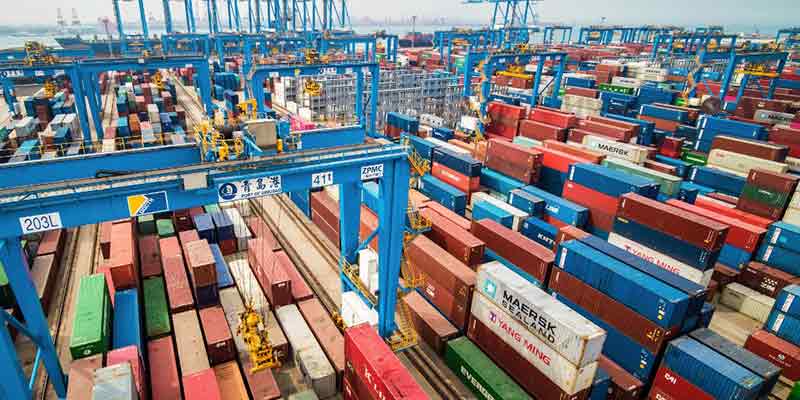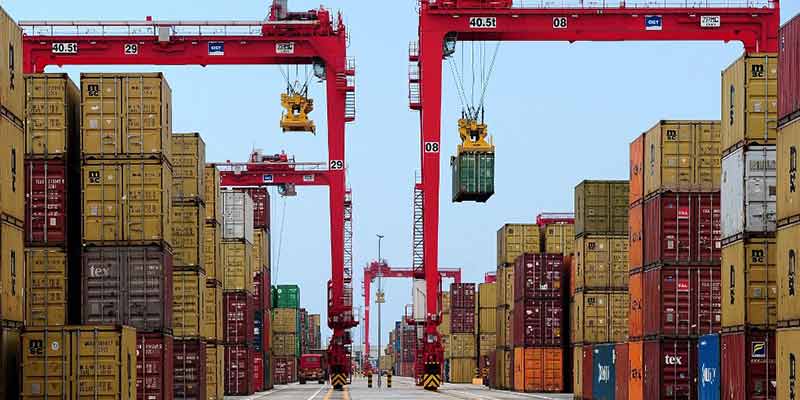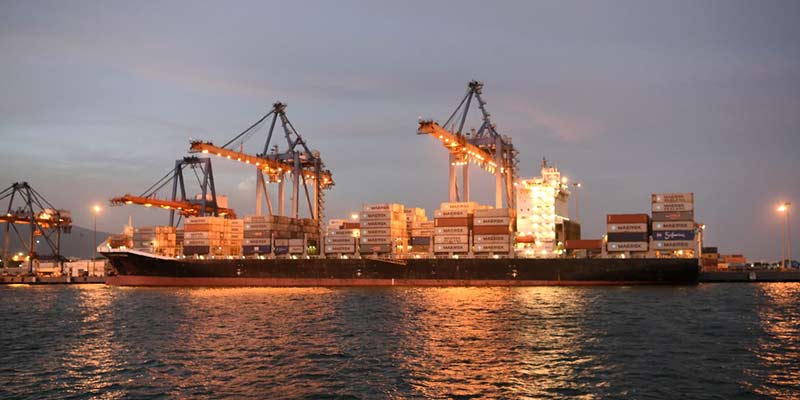- India
- Apr 01
India unveils Foreign Trade Policy 2023
• Union Minister Piyush Goyal unveiled the Foreign Trade Policy 2023 on March 31.
• Foreign Trade Policy (FTP) 2023 is aiming to push rupee trade, increase outward shipments to $2 trillion by 2030, and promote e-commerce exports, amid global uncertainties.
• India is likely to cross $765 billion merchandise and services exports in the financial year 2022-23 and will endeavour to more than double the exports to $2 trillion in the next seven years. The total exports stood at $676 billion in the previous fiscal year.
• Unlike the practice of 5-year FTPs, this time the government has come out with a dynamic and responsive trade policy without any end date, and will be updated as per the emerging global scenario.
What is meant by Foreign Trade Policy?
• The Foreign Trade Policy is notified by the Union government, in exercise of powers conferred under Section 5 of the Foreign Trade (Development & Regulation) Act, 1992.
• The FTP 2015-20 was launched on April 1, 2015. A midterm review of FTP was held in December 2017 after the introduction of GST. It was extended due to COVID-19 pandemic and volatile geo-political scenario till March 31, 2023.
• In the FTP 2015-20, changes were done subsequent to the initial release even without announcement of a new FTP, responding dynamically to the emerging situations. Hereafter, the revisions of the FTP shall be done as and when required.
• Incorporating feedback from trade and industry would also be continuous to streamline processes and update FTP, from time to time.
The key approach to the policy is based on four pillars:
i) Incentives to remission
ii) Export promotion through collaboration - exporters, states, districts, Indian missions
iii) Ease of doing business, reduction in transaction cost and e-initiatives
iv) Emerging Areas – e-commerce developing districts as export hubs and streamlining SCOMET policy.
Key highlights of FTP 2023:
Special one-time Amnesty Scheme
• The government is committed to reducing litigation and fostering trust based relationships to help alleviate issues faced by exporters. In line with the ‘Vivaad se Vishwas’ initiative, which sought to settle tax disputes amicably, government is introducing a special one-time Amnesty
Scheme to address non-compliance in Export Obligations by Advance Authorisation and EPCG authorisation holders.
• All pending cases of default in Export Obligation (EO) of authorisations mentioned can be regularised by the authorisation holder on payment of all customs duties exempted in proportion to unfulfilled Export Obligation and maximum interest is capped at 100 per cent of such duties exempted. No interest is payable on the portion of Additional Customs Duty and Special Additional Customs Duty.
• The Amnesty Scheme shall be available for a limited period, up to September 30, 2023. Cases under investigation for fraud and diversion are not eligible for this scheme.
Rupee payment to be accepted under FTP schemes
• The FTP aims at internationalisation of trade in Indian rupee. It allows international trade settlement in Indian rupee and required changes have been introduced for grant of export benefits and fulfilment of Export Obligation (EO) for export realisations in the domestic currency as per the Reserve Bank of India (RBI).
Towns of Export Excellence
• Faridabad, Moradabad, Mirzapur and Varanasi have been declared as Towns of Export Excellence (TEE) with an aim to give thrust to cluster-based economic development. These four new towns of export excellence (TEE) are in addition to the already existing 39 TEEs.
• TEEs are industrial clusters that are recognized based on their export performance. Recognition to these industrial clusters is granted with a view to maximise their potential and enable them to move up the value chain and to tap new markets.
Promoting export from districts
• The FTP aims at building partnerships with state governments and taking forward the Districts as Export Hubs (DEH) initiative to promote exports at the district level and accelerate the development of a grassroots trade ecosystem.
• Efforts to identify export worthy products and services and resolve concerns at the district level will be made through an institutional mechanism — State Export Promotion Committee and District Export Promotion Committee. District specific export action plans to be prepared for each district outlining the district specific strategy to promote export of identified products and services.
Recognition of exporters
• Exporter firms recognised with ‘status’ based on export performance will now be partners in capacity-building initiatives on a best-endeavour basis.
• Similar to the ‘each one teach one’ initiative, 2-star and above status holders would be encouraged to provide trade-related training based on a model curriculum to interested individuals.
• This will help India build a skilled manpower pool capable of servicing a $5 trillion economy before 2030. Status recognition norms have been re-calibrated to enable more exporting firms to achieve 4 and 5-star ratings, leading to better branding opportunities in export markets.
Emphasis on streamlining SCOMET licensing procedure
• In consonance with the guidelines and control lists of international conventions and obligations as well as multilateral export control regimes, India has regulated the exports of dual use items, nuclear related items, including software and technology.
• SCOMET is an acronym for Special Chemicals, Organisms, Materials, Equipment and Technologies.
• The SCOMET list is our National Export Control List of dual use items, munitions and nuclear related items, including software and technology and is aligned to the control lists of the all the multilateral export control regimes and conventions (Wassenaar arrangement, Australia group and Missile Technology Control Regime).
• Policy for export of dual use items under SCOMET consolidated at one place for ease of understanding and compliance by industry.
• Recent policy changes were introduced, such as general authorisations for export of certain SCOMET items, to streamline licensing of these items to make export of SCOMET items globally competitive.
• It also focuses on simplifying policies to facilitate export of dual use high end goods/technology such as UAV/drones, cryogenic tanks, and certain chemicals.
Merchanting trade reform
• To develop India into a merchanting trade hub, the FTP 2023 has introduced provisions for merchanting trade.
• To boost merchanting activities from India, Merchanting trade involving shipment of goods from one foreign country to another foreign country without touching Indian ports, involving an Indian intermediary is allowed subject to compliance with RBI guidelines, except for goods/items in the CITES and SCOMET list.
• In course of time, this will allow Indian entrepreneurs to convert certain places like GIFT city into major merchanting hubs as seen in places like Dubai, Singapore and Hong Kong.
Facilitation for e-commerce exports
• The policy specifically extends FTP benefits to e-commerce exports which are estimated to grow to $200-300 billion by 2030. To streamline e-commerce export facilitation, guidelines are being formulated in consultation with other ministries.
• Also, there will be special outreach and training activities for small e-commerce exporters. As a starting point, the consignment wise cap on e-commerce exports through courier has been raised from Rs 5 lakh to Rs 10 lakh.
Facilitation under EPCG scheme
• The objective of the EPCG scheme is to facilitate import of capital goods for producing quality goods and services and enhance India’s manufacturing competitiveness.
• The EPCG scheme is being further rationalised.
Some key changes being added are:
i) Prime Minister Mega Integrated Textile Region and Apparel Parks (PM MITRA) scheme has been added as an additional scheme eligible to claim benefits under CSP (Common Service Provider) scheme of EPCG.
ii) Dairy sector to be exempted from maintaining Average Export Obligation – to support dairy sector to upgrade the technology.
iii) Battery Electric Vehicles (BEV) of all types, vertical Farming equipment, wastewater treatment and recycling, rainwater harvesting system and rainwater filters, and green hydrogen are added to green technology products, thus making them eligible for reduced Export Obligation requirement under the EPCG scheme.
Directorate General of Foreign Trade (DGFT)
• Directorate General of Foreign Trade (DGFT) is an attached office of the ministry of commerce and industry. Right from its inception till 1991, when liberalisation in the economic policies of the government took place, DGFT has been essentially involved in the regulation and promotion of foreign trade.
• Keeping in line with policies of liberalisation and globalisation and the overall objective of increasing exports, DGFT has been assigned the role of a “facilitator”. The transition has been from prohibition and control of imports/exports towards promotion and facilitation of exports/imports, keeping in view the interests of the country.
• This Directorate, with headquarters at New Delhi, is headed by the Director General of Foreign Trade.
• It assists the government in formulation of Foreign Trade Policy (FTP) and is responsible for implementing the Policy and schemes under FTP with the main objective of promoting India’s exports.
• Further, it is responsible for implementation of Foreign Trade (Development and Regulation) Act, 1992 and Rules and Regulations notified thereunder.
• The DGFT also issues authorisations to exporters and monitors their corresponding obligations through a network of 24 regional offices.
Manorama Yearbook app is now available on Google Play Store and iOS App Store




